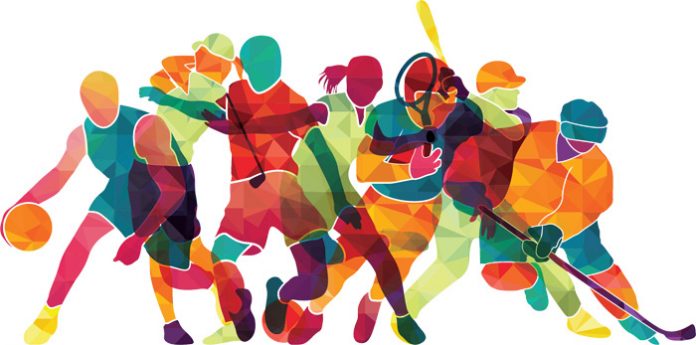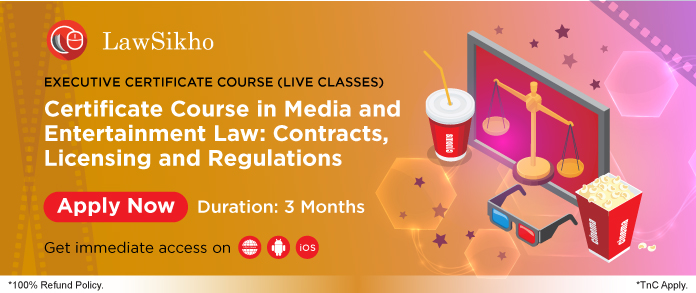This article is written by Shivani Singh, from NUSRL, Ranchi.
Table of Contents
Introduction
Intellectual Property Rights being a global phenomenon is not only recognized in India but in other countries as well. The main aim of IPR is to encourage creativity and innovation and to protect reputation or goodwill that is attached to a brand, by ensuring that the owner of the IP rights gets a fair recognition and reward for his original work or invention through earning his livelihood from it. IP owners can even prevent other people from using or copying their work or invention without their permission until their works come under the scope of public domain. The duration for protection of IP rights are for a limited period of time; for example- in India, Copyright, in certain cases, is protected for a period of 60 years plus lifetime of the author and Patents are protected for the period of 20 years from the date of application of the patent. IP owners can even license, assign or sell their IP rights. This article primarily focuses on the role of Intellectual Property law in the sports sector.
The scope of Intellectual Property law covers wide aspects of sporting events, Sport brands, etc. IPR bestows IP rights in every sector of the sports field. Starting from Copyrights, in which the Broadcasters require to put into lots of money for broadcasting the sporting events so that, the fans all over the world can enjoy the match. The Patents which promotes innovation and technological advancement will ultimately result in inventing sporting devices. The Trademark protects the goodwill or reputation of a sporting brand. And lastly, Designs protects the aesthetic value of sports articles. For example- A sports bag covers a wide range of IP rights such as a Copyright protects the audio-visual creations used by the broadcaster to publicize the bag. Trademark protects the goodwill that is associated with the brand of the bag by differentiating it with any other product of similar nature. Design law protects the aesthetic design of the bag. And Patent would protect the technological advancement used in inventing such a bag.
With the commercialization of sports, the sports industry has grown at a rapid pace over the years with certain sports like Cricket, gaining popularity in India over the other sports. Cricket, which has been known as a Gentleman’s sport, has now transformed into a commercial sport which requires huge capital investment and profits are made out of it. Taking the example of IPL (Indian Premier League), this requires an investment of lots of money which eventually results in huge scams, involving the issue of gambling. If we take the example of Football, then there are many teams like Manchester United, Liverpool, Chelsea, Real Madrid, Barcelona are best example which have created a huge market through capitalization of brands.
Various IP rights like Trademark, Copyright, Personality rights protect, commercialize and exploit the commercial facet of the sporting arena. The legal framework for discussing the role of IP laws in the sports industry can be seen below.
Role of copyright in sport industry
There are various provisions laid down in the Copyrights Act, 1957 which allow for the protection of several components of the sporting events such as the artwork which is associated with the logo, slogan, trademark, etc. Since the Copyright Act does not mandate for the registration of the work of the author, it becomes quite easy for the artwork to be protected as a copyrighted work under the law.
In case of infringement of the artwork of the author, the Copyright Act provides for civil remedies under Section 55 of the Act which states as Permanent, Temporary, Interlocutory and Mareva Injunctions, Anton pillar order, Accounts of profits or damages and Litigation costs. It also provides for criminal remedies under Section 63 of the Act which states as imprisonment for a cognizable offence punishable with fine.
Role of trademark in sport industry
Trademarks have a crucial role to play in the sports industry. When the Sports industry began its branding, it included the characteristics such as logo, mark, taglines, captions slogans, etc. which resulted in the creation of brand value in merchandise, sports club, sportsperson, teams, etc. The brand value of a team name, sports clubs, player and merchandise create a degree of association with the public at large (especially fans), which eventually helps in gaining popularity of any team, player, etc.
Section 135 of the Trademarks Act, 1999 provides for both civil and criminal remedies against infringement or for passing off. Just like the Copyrights Act, the Trademark Act also does not mandate for Registration of the brand so even if any individual who has not registered his brand then also he can enforce his rights under the law. Violation of a trademark/brand is a cognizable offense and criminal proceedings can be instituted against the infringer.
Personality rights in sports industry
Personality Rights in sports has proven to be a significant part in the brand formation of both individual sports person and teams. Even the individual players like Tiger Woods, Cristiano Ronaldo and Lionel Messi have become an international brand because of their celebrity status. This celebrity status of the players helps them to gain popularity worldwide and this popularity ultimately turns as a monetary profit for them by doing advertisements or becoming brand ambassadors for a particular brand. Celebrity status prompts different types of image creation, brand advertisement and also helps in generating the revenue. It is required that the federations, coordinators, team owners and athletic equipment producers must choose for registration of their team names, logos, settings, subtitles, slogans and mottos registered as trade names under the Indian Trademarks Act 1999, which will make their life simple for ensuring their trade names in Indian courts.
An activity with respect to the players to register their names, photos and caricatures as trade names/brands ought to likewise be the standard of the day. Simple association of the name of a team, their logo or a team, could offer extraordinary mileage to the individual or entity utilizing such name or logo. It is a misfortune to the team, team owner, player and an unjustifiable profit for the entity partner such name or logo for their own business benefits, without taking any authorization, or paying any license fee or royalty. An unsanctioned utilization of the brand names by a 3 rd party without the assent or license of the team owner of such trade names may likewise bring about injury to the goodwill of the parties involved, additionally resulting in unfair competition, damage to reputation and unfair trade practice.
Domain name in sports industry
Indian courts generally place domain name under the purview of Trademark only. It plays a vital role in protection of IP rights associated with sports. Several information is being communicated and sporting events are being broadcasted through internet, which has not only obtained enormous market shares in creation of brand value, but also has given many occasions to the cyber squatters for committing a crime, just by taking the advantage of the uncertainty which may be accountable solely to domain names. Through website, advertising as well as creating brands have become quite easy.
In order to create brand recognition, many sponsor companies are engaged in selling of tickets of a sport event online, online shopping websites for selling branded merchandise, etc., so as make the experience of a customer comfortable and better. As we all are aware of the fact that internet is an efficient way to spread awareness about the teams, players and the sporting event. Registration of multiple domain names has become very crucial in order to protect the online gamers, fans, merchandise purchaser, etc. from committing any mistakes which would ultimately lead to the trap of cyber-squatters. It is always advisable to be protected against the brand misuse and trademark dilution by registering the domain names with popular gTLDs, i.e. .com, .gov, .org, etc.
Licensing and franchising in sports industry
Licensing and Franchising plays a crucial role in generating revenue through the sporting events, wherein the licensee or the franchisee acquires right to sell an exclusive merchandize of the IP owner, which is related to the exclusive teams, clubs, etc. with the intention of creating goodwill or reputation of the brand name. The sole objective behind the exclusivity is generating brand name and increasing the sale of the merchandise.
There are various other ways in which profit can be generated through licensing or franchising the IP rights, which are vested in online games, Restaurant and bar services, broadcasting rights including Media rights, TV/DTH services, etc. Ignorance is bliss for those people who want to enjoy the privileges of IP rights owned by others and gain profit out of it, merely by denying the fact of existence of their IP rights. But ignorance is curse for the IP owners who are unsuccessful in educating people and even failed to give notice to the party, who is exploiting or planning to exploit their IP rights without paying any royalty. The Brand and Content Protection Guidelines which provides for the do’s and don’ts shall be made an important mechanism for all IP owners who are associated with the sporting industry. The companies that provide sponsorship for the sport events generally invest lots of money in the organization and promotion of the sporting arena.
So, therefore, they should incorporate such an elaborative brand and content protection guidelines, which must be uploaded on their official websites and must be advertised in order to prevent the misbranding/misuse of IP rights.
Ambush marketing
The protection against Ambush Marketing is one of the most crucial aspects of IPR in sports sector. The concept of Ambush Marketing can very well be explained through the landmark judgment of National Hockey League (NHL) vs. Pepsi-Cola Canada Ltd. in the year 1990. In the present case, NHL, through an agreement, made Coca Cola its official sponsor for the sporting event. Coca Cola eventually obtained the right to use NHL’s symbols for its promotional programme in Canada & USA but did not obtain any broadcasting rights on television. NHL has already sold this right to a company named Pepsi-Cola, which was business rival of Coca Cola. The controversy arose between Coca Cola and Pepsi-Cola when Pepsi-Cola broadcasted an advertisement on television showing well-known celebrity conveying a message that Pepsi is the official drink of the tournament. Coca-Cola did not succeed in its claim for passing off against Pepsi-Cola.
Ambush Marketing refers to a marketing strategy wherein companies try to free ride over the privileges obtained by the company who are official sponsors of a particular sport event. In other words, Ambush Marketing means attacking from a hidden position. The Ambusher promotes its merchandise brand by relating it to the players, teams, tournament or event without even paying for the benefits. The Ambusher is not an official sponsor of the sporting event; still it spends money on advertising its Company. Following are the Ambush marketing strategies:
- Distributing free branded merchandise to the people present in the sporting event.
- Flying overhead the branded barrage balloons around the stadiums, this would help in attracting the spectators as well television coverage.
- Broadcasting ads during the break, wishing the teams “good luck”.
Apart from the countering the strategy in order to prevent Ambush tactics, there is a need to protect the trademark and copyrights of the IP owners through registration of all marks, brand, logo, etc. associated with the sporting event. Explicit terms and conditions and contractual obligations under IP agreements in relation to the sporting event must clearly be set out so as to control such activities.
Conclusion
The commercial sports triggers core IPR related issues such as Trademark, licensing and franchising, Copyright, etc. These IP rights demands that its protection in any sporting events like the one mentioned above are inevitable in nature. So that in order to protect such IP rights, a proper legal contractual agreement must be drafted which would protect all forms of intellectual property associated with the sporting events, players etc. Sports industry can generate revenue through various ways. And it is very crucial for the Indian government to encourage and promote its sport and culture so that it could be raised up to international standards.
References
- Section 55 of the Copyright Act, 1957.
- Section 135 of the Trademarks Act, 1999.
- Brand and Content Protection Guidelines (September 21, 2020, 12:00 AM), https://www.iplt20.com/news/137115/brand-content-protection-guidelines
- National Hockey League (NHL) vs. Pepsi-Cola Canada Ltd., 70 B.C.L (2d) 27 (1992).
- Intellectual Property and Sports: Tracing the Connections (September 23, 2020, 11:00 AM), https://www.wipo.int/ipoutreach/en/ipday/2019/ip_sports.html#:~:text=%20The%20strategic%20use%20of%20IP%20rights%20in,play%2C%20mutual%20respect%20and%20friendship%3B%20and%20More%20
- World Intellectual Property Day 2019 “Reach for Gold”: IP and Sports (September 19, 2020, 10 PM), https://www.wipo.int/pressroom/en/articles/2019/article_0006.html
- Kishor Bhatt & Sumeet Handa, Intellectual Property Rights (IPR) in Digital Environment: An Overview in Indian Digital Environment, International Journal of Digital Library Services (2015).
LawSikho has created a telegram group for exchanging legal knowledge, referrals and various opportunities. You can click on this link and join:
 Serato DJ Crack 2025Serato DJ PRO Crack
Serato DJ Crack 2025Serato DJ PRO Crack











 Allow notifications
Allow notifications


